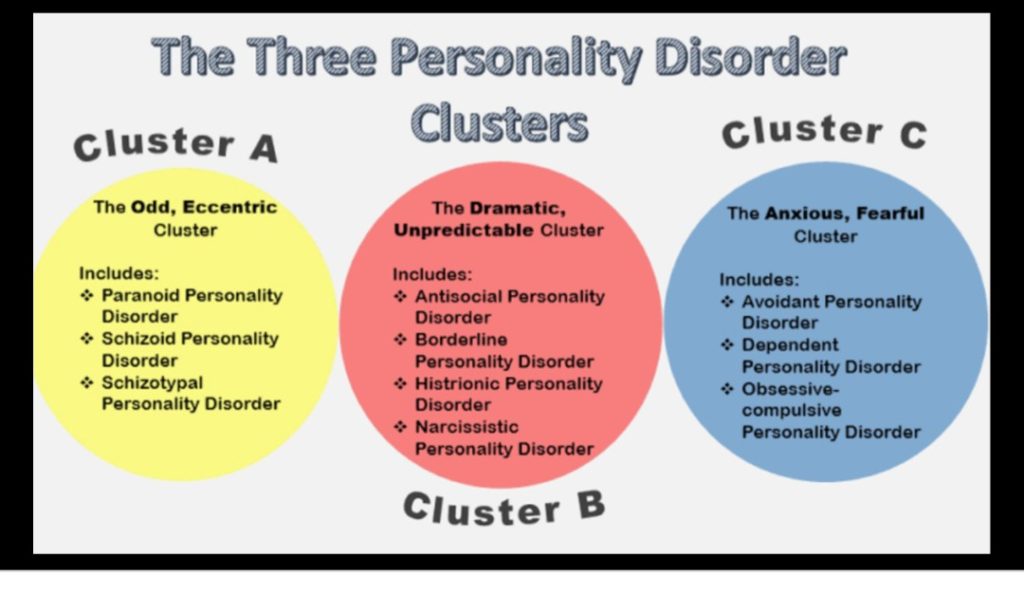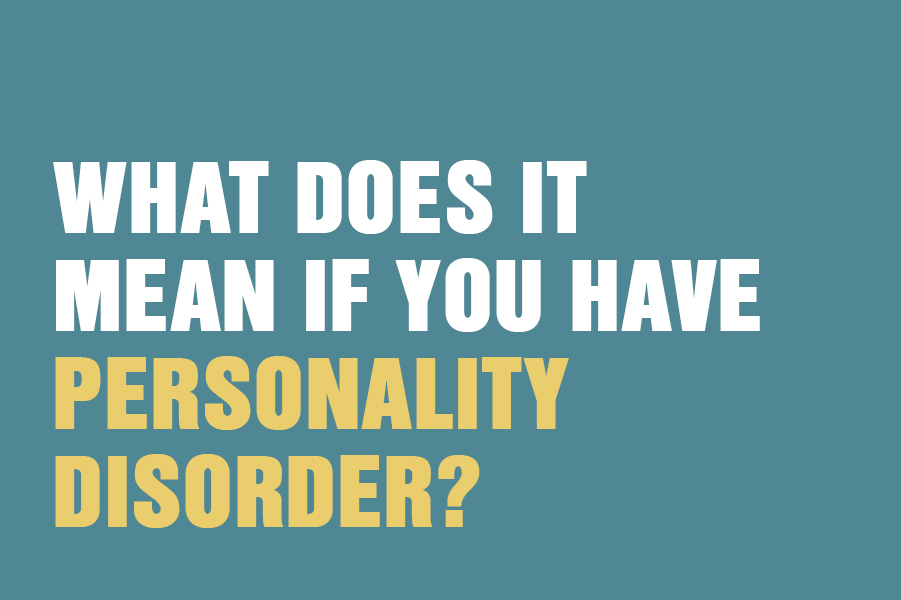Dependent Personality Disorder
Dependent Personality Disorder is a psychiatric medical condition that requires attention. Dependent Personality Disorder may affect your personal life, professional career, and family ties.
Relationships of all kinds can be ruined by dependent personality disorder (DPD). Despite estimates showing that fewer than 1% of adults have this disease, it still causes misery not only to the person with the disorder but also to those who are in connections with them (APA, 2013).
The signs of this illness are more prevalent in women, and they first become a concern in early adulthood. While young children and teenagers may depend on others for guidance and assistance, as they get older, they should become more independent. Unfortunately, with time, persons with DPD become more and more dependent, weak, and clingy. Individuals with the illness also experience unhealthful anxiety of separation that lasts into adulthood.
A dependent personality disorder is a type of Cluster C disorder. The avoidant and obsessive-compulsive personality disorders are among those in Cluster C. Most of the time, those with Cluster C disorder have afraid or anxious thoughts and actions.

Fearful-Avoidant Attachment Style and DPD
Unfortunately, despite a number of plausible explanations being suggested, the precise cause of this disorder is still unknown (Disney, 2013). These include the upbringing and negative events, such as being sexually abused or suffering from a serious disease as a child.
The best indicator of DPD, it has been found, is attachment style. Most kids who grow up with a scary attachment style eventually acquire DPD. Their neurotic and avoidant inclinations push them to avoid creating these relationships, despite their intense need to be taken care of, receive affection, and have close interactions.
In addition to having a higher level of sexual activity, difficulty controlling their emotions, and a higher risk of relationship violence, people with a fearful-avoidant attachment style also tend to have DPD.
Extremely overprotective parenting may also be a factor in DPD. Its growth may also be influenced by narcissistic parents who treat their kids like “props” and hold them to high standards.
Experiencing DPD: How It Feels
People with DPD symptoms struggle with life because of their excessive need for other people’s attention, care, and acceptance. They have such a strong need for affection that they will give in to partners’ demands for anything from the trivial to the major. Clothing preferences, activity levels, meal selection, diet, place of living, and everyday activities are all left up to the discretion of others.
People are painfully dependent on others, riddled with self-doubt, lacking in self-confidence, regularly putting themselves down, and lacking in self-worth. One of their greatest anxieties is being alone since they feel they can’t handle daily life’s routines, choices, and decisions independently.
Workplace disruption
Individuals with DPD have difficulty making decisions about their careers, just like those with an avoidant personality disorder. It is impossible for them to hold jobs that call for initiative or leadership. Their dependence on outside guidance prevents them from advancing professionally, and they view decision-making-intensive roles as onerous and unaffordable.
Employees with DPD may irritate their managers and coworkers because of their uncertainty or need for frequent reassurance that they are carrying out tasks correctly. A person might abandon a profession that requires any degree of independent thought or action if they are so afraid of making a mistake, acting incorrectly, or not achieving expectations.
Risks in Relationships
DPD sufferers find it difficult to live independently. Desperate attempts to connect may result in relationships where people are used or abused. While most of us have some level of fear of being abandoned, people with DPD have so intense fear that it controls all they do. At the beginning of a relationship, when couples tend to be invested in one another and portray idealized versions of their mates, their neediness and clinginess may seem “natural.” Unfortunately, as relationships progress, projections and illusions fade, and some partners find it difficult to bear their partner’s intense neediness.
People with DPD are willing to endure substantial humiliation and abuse in order to continue relationships. Their greatest worry is that their relationships would end, but regrettably, their dependence on others and their unquenchable need for reassurance can make them difficult to deal with as friends and lovers. Friends and romantic partners could think that this person has unquenchable desires and start looking for methods to leave the connection. But when they understand how utterly dependent on them their friend or lover has become, they may feel guilty about their decision to quit the connection. Risks in Relationships
DPD sufferers find it difficult to live independently. Desperate attempts to connect may result in relationships where people are used or abused. While most of us have some level of fear of being abandoned, people with DPD have so intense fear that it controls all they do. At the beginning of a relationship, when couples tend to be invested in one another and portray idealized versions of their mates, their neediness and clinginess may seem “natural.” Unfortunately, as relationships progress, projections and illusions fade, and some partners find it difficult to bear their partner’s intense neediness.
People with DPD are willing to endure substantial humiliation and abuse in order to continue relationships. Their greatest worry is that their relationships would end, but regrettably, their dependence on others and their unquenchable need for reassurance can make them difficult to deal with as friends and lovers. Friends and romantic partners could think that this person has unquenchable desires and start looking for methods to leave the connection. But when they understand how utterly dependent on them their friend or lover has become, they may feel guilty about their decision to quit the connection.

Dependent personality disorder symptoms
A person with a dependent personality experiences neediness that is characterized by excessive reliance on others. His or her closest relationships will determine what needs to be met on an emotional and physical level.
Dependent personality disorder makes it extremely difficult for sufferers to make simple decisions, like what to wear, without receiving a lot of direction and assurance from others. These people are prone to being passive, letting others (often one other) take the initiative and bear responsibility for the majority of the key aspects of their lives. Adults with this disease frequently rely on their parents or spouses to decide their housing, employment, and social circle. Teenagers with this illness might let their parents dictate their dress, who they hang out with, how they spend their leisure time, and which school or college they should attend.
These people can’t voice their thoughts or their disagreements, especially with others who are dependent on them, because they are looking for support and approval. They feel so dependent on others that they agree with actions they believe to be wrong rather than take a chance on losing the support of the people they turn to for advice. This illness makes it challenging for sufferers to take the initiative and work autonomously.
They might even volunteer for difficult chores if it gets them the care they need. They might go to great lengths to get support and nurturing from others. Due to their excessive anxieties about not being able to take care of themselves, people with this disease feel uneasy or powerless when they are alone themselves.
People with this disease don’t believe in their judgment and think others are better prepared. They might be saddened by the separation and loss, and they might even experience abuse in order to maintain a connection. They might constantly call themselves foolish and may disparage their talents. Other indications and symptoms listed by the DSM-5 include:
Five or more of the following suggest a pervasive and excessive need to be cared for, which results in submissive and clingy behavior and fears of separation, beginning by early adulthood and present in a range of contexts:
- has trouble making judgments on a daily basis without seeking out extra support and assistance from others.
- needs others to take up the majority of their key responsibilities.
- has trouble disagreeing with people because they are afraid of losing their support or acceptance. (Note: Excludes reasonable apprehensions of reprisal.)
- has trouble taking the initiative or acting alone (because of a lack of self-confidence in judgment or abilities rather than a lack of motivation or energy).
- goes above and above to win the love and support of others, including offering to do unpleasant things for them.
- due to excessive anxieties of being unable to care for themselves and feeling uncomfortable or powerless while alone.
- is unjustifiably obsessed with worries about being left alone to look after themselves.
- when a close relationship ends, the person scrambles to find another one that will serve as a source of support and caring.
Treatment for dependent personality disorder
People with a dependent personality disorder might think about receiving treatment through psychotherapy. Cognitive-behavioral therapy focuses on addressing symptoms or qualities indicative of the condition, such as the inability to make critical life decisions or share authority in relationships, as well as on dysfunctional thought patterns and the beliefs that underlie dependent thinking. Long-term therapy or treatment is frequently necessary for this illness.
The use of medication may be beneficial because there may be more underlying issues. Patients with co-occurring disorders and dependent personality disorder are frequently administered antidepressants, sedatives, and tranquilizers.
Getting Treatment for Dependent Personality Disorder in Philadelphia
People who fit the criteria for a personality disorder diagnosis may not even be aware that they have a problem. There aren’t many differences between people who display a clinically significant number of DPD symptoms. Their potential need for counseling is typically motivated by issues with addiction, anxiety, or depression. Living in a constant state of fear and insecurity takes a toll, and some people may use drugs as a form of self-medication to lessen the anxiety that their DPD causes.
Revision of relationship expectations, the replacement of false ideas, and the development of more effective coping mechanisms are all possible benefits of cognitive behavioral therapy. Since DPD is frequently characterized by pessimism, addressing self-defeating thoughts may be a key therapy component. Strengthening one’s feeling of self may be accomplished through assertiveness training. If the patient is dedicated to making changes, treatment for the symptoms of DPD may be beneficial.
If you suffer from a dependent personality disorder and prefer natural, effective, and affordable treatment, Philadelphia Hypnotherapy Clinic is your right choice. Since our clinic is a subdivision of the internationally recognized Philadelphia Holistic Clinic, you can get a wide range of holistic approaches under one roof. We have licensed health professionals in different areas of naturopathic and integrative medicine, including acupuncture, homeopathy, hypnosis, reiki, and Ayurveda.
All our health professionals work under the straight supervision of medical doctor Victor Tsan.
To schedule your appointment for evaluation and to discuss which holistic method is best for you, contact our office at (267) 403-3085 or book your appointment online using our secure web application.
Click here to open the scheduling page and choose the best date and time for your appointment.
